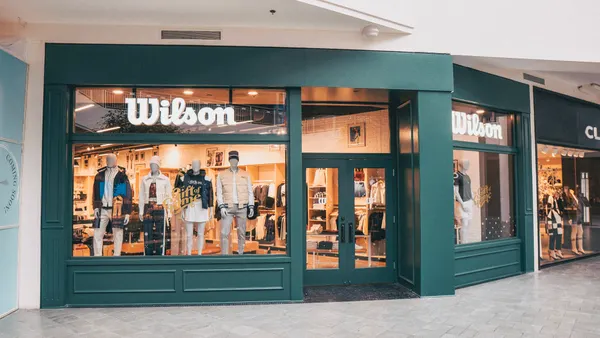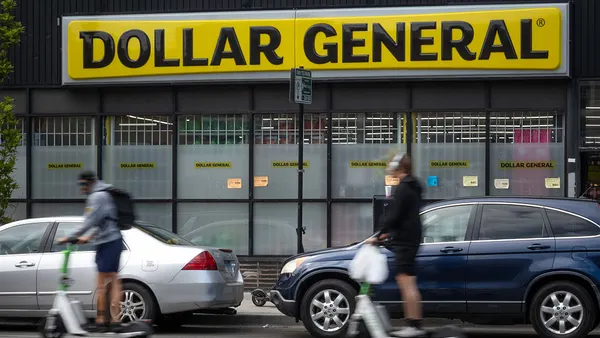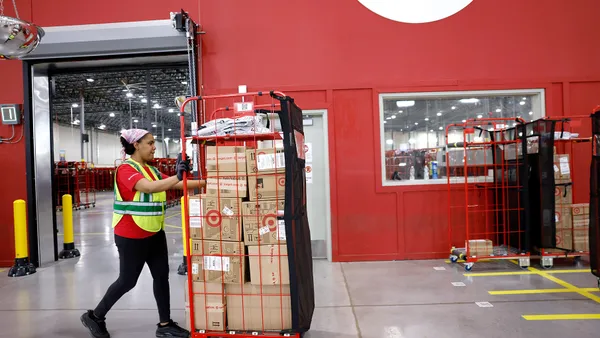Dive Brief:
- In a lawsuit filed Wednesday in New York State court in Manhattan, Visa alleges that Wal-Mart violated its contract with the card network by secretly altering its payment terminals so that only PIN-based debit card transactions could be accepted.
- The allegation was the latest bit of mud slung in the ongoing legal battle between the two companies: Wal-Mart had sued Visa in the interest of enabling customers to authenticate puchases with a personal identification number rather than requiring them to sign, which is widely viewed as being less secure than PIN-based authorization.
- Visa collects a fee off signature-based transactions, but PIN-based transactions travel over a different network, so the card provider loses out on fees in those cases.
Dive Insight:
The longstanding fight between retailers and card companies over transaction fees has evolved to include disagreements of how payments should be processed in a new era of elevated security sensitivity. There's nothing like allegations of a little secret manipulation of payment technology to further spice things up: If it's true that Wal-Mart secretly altered its payment terminals, we would love to hear more about how it went about doing that—it would earn the company some new respect in both retail and high-tech circles.
According to the original suit filed by Wal-Mart last month, Visa is forcing the retailer to allow customers to use a signature in EMV transactions. Debit cards are used 70% of the time a card-based payment is made at Wal-Mart, according to the Wall Street Journal; Wal-Mart says that PINs are more secure, but Visa earns five cents more per transaction when a signature is used.
From a card security perspective, it doesn't appear that Visa has much ground to stand on, as PIN input at a terminal on which the keyboard is somewhat shrouded from view is much more secure than getting a signature on a receipt in full view of others' prying eyes.
It seems like Wal-Mart is doing its best to protect its customers' security and privacy. But if Visa's allegation is true, Wal-Mart's not doing its customers much of a service by leading them to a checkout line in the belief they can sign for a transaction, only to find out they need a PIN which they may not actually possess. That sounds like a good way of losing the customers you're trying to protect.
Stay tuned, because we certainly haven't heard the last from either party in this dispute.











